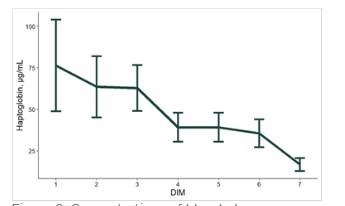By Gabriel Scotto
Wholesale egg prices have plummeted 50 percent since peaking in December, meaning consumers can expect lower prices at the grocery store in the near term. However, this reprieve may not last if the United States sees another record-breaking avian flu epidemic.

“Avian influenza is a concern of all poultry farmers,” said Jim Chakeras, vice president of the Ohio Poultry Association, a trade organization that represents Ohio’s egg, chicken and turkey farmers. “It’s quite deadly for domestic poultry. If you have it on your farm, you’ll probably lose up to 95 percent of your chickens.”
Last year, farmers were forced to cull 43 million egg-laying hens in order to contain the spread of highly pathogenic avian influenza or HPAI, reducing egg inventories by 29 percent compared to December 2021. In total, some $3 billion dollars’ worth of poultry were lost during the outbreak.
“As much as consumers complain about chicken and egg prices, imagine being the farmer that has to deal with that much loss on their farm,” said Ty Higgins, director of media relations at the Ohio Farm Bureau Federation. “It’s devastating. It’s hard on the family, it’s hard on the community and it’s hard on the farmer.”
Ohio is the second-largest egg producing state and some 5.3 million birds were euthanized last September after an HPAI outbreak in northwest Ohio.
“We call it ‘emergency depopulation,’ where we humanely euthanize these birds,” said Chakeras. “It’s done to stop the suffering of any birds that come down with it and also to prevent it from spreading to other birds, which is why such emergency measures are important to help us control the disease.”
Typically, avian flu outbreaks, which are spread through bird droppings, take place during the spring and fall as wild birds migrate.
“Last year’s avian flu outbreak was peculiar,” said Higgins. “What we saw in 2022 was an outbreak that never really ebbed and flowed; it stayed relatively steady for a good majority of the year from spring up through fall, so we never saw respite in outbreaks.”
Only essential personnel are allowed on farms and are required to wear special clothing and shoes when entering barns where poultry are kept to prevent tracking in the disease from the outside. Many farms also require those who are entering barns to shower when going in and out of those facilities.
“As far as Ohio is concerned, we have some of the most stringent safety regulations in the country when it comes to livestock production,” said Higgins. “Our farmers take biosecurity very seriously. They take classes every single year and get certified. But when you have something that drops from the sky, it’s hard to have enough measures in place to stop something like that from entering a flock.”
Poultry farms where HPAI has been detected are placed under quarantine, with a 10 kilometer “surveillance zone” established around the affected area to control the spread. At present, the Centers for Disease Control considers the risk of human transfer to be extremely low.
“You’re not going to get avian influenza by eating eggs, turkey or chicken, and if there is ever a concern with foodborne illness, thoroughly cook your food to eliminate those pathogens,” said Chakeras.
So far this year, there have only been a few isolated cases of HPAI across the country, though it is likely the number of outbreaks will increase as spring draws closer and wild birds begin migrating.
“When we start to get warmer, that’s when the birds will start flying back up north and that’s when we have to be on high alert,” said Higgins. “Farmers are taking all the precautions they need in order to keep their flocks safe.”
The USDA is currently working to develop a vaccine to combat HPAI for poultry to prevent future outbreaks from occurring. While vaccines for diseases such as salmonella and bronchitis are widespread, along with vaccines for low pathogenic avian influenza (LPAI), there is no vaccine available for HPAI. In addition, many foreign buyers are reluctant to purchase meat and eggs from vaccinated chickens.
Click here to see more...